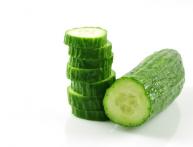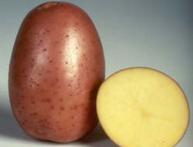The Forgotten Benefits of Turnips, Fresh and Cooked
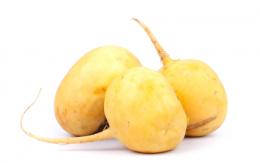
Today, many people know turnips only from old fairy tales and sayings. But this garden plant is not entirely deservedly forgotten. The benefits of turnips, both in daily nutrition and in the treatment of many diseases, have been known for a very long time. Everyone remembers the fairy tale about “About Tops and Roots” and the saying about steamed turnips, let’s try to figure out what properties turnips bring to the body.
Content:
- Turnip, garden plant
- Nutritional value and benefits of turnips
- Turnips in cooking
- Turnip in folk medicine
Turnip, garden plant
Turnip - herbaceous plant from the genus Brassicaceae or Cruciferous. It has been cultivated by humans as a garden crop for several millennia. Asia is considered to be the birthplace of the plant, although it was widespread in the Mediterranean countries. Many European peoples have used turnips for food since ancient times, both fresh and cooked. In Russia, until the 18th century, it was the main garden vegetable, until it began to be replaced by imported potatoes.
The turnip gained such popularity due to its thick, expanded root. It is formed in the first year after sowing the seeds. The above-ground part of the plant is represented by:
- rosette of basal leaves
- stem
- stem leaves
- inflorescence
The plant usually blooms in the second year of life. The inflorescence is an umbrella, consists of small, lemon-yellow flowers. The fruit is a pod with dark brown seeds.The above-ground parts are used in folk medicine, and the thick, fleshy turnip root is also used as food.
Nutritional value and benefits of turnips
The benefits of turnips are primarily due to the high content of various vitamins:
- A
- WITH
- IN 1
- AT 2
- AT 5
- RR
In terms of vitamin C content, it can even be compared with lemon.
Turnips are also distinguished by a rich set of useful micro- and macroelements:
- gland
- potassium
- manganese
- calcium
- sulfur
- phosphorus
- magnesium
- iodine
In addition, 100 grams of turnip contains:
- protein 1.5 g
- fat 0.1 g
- carbohydrates 6 g
- dietary fiber 1.9
Calorie content of fresh turnips - 28 kcal/100 g.
Due to its low calorie content and high vitamin content and minerals, turnips can be a complete replacement for potatoes. First of all, it will be useful to people who suffer from the following diseases:
- obese
- diabetes mellitus
- rickets
- avitaminosis
It is worth choosing turnips of medium-sized, sweet or mildly spicy varieties for food. It can be consumed both after heat treatment and fresh.
Turnips in cooking
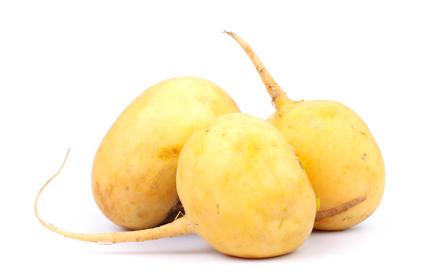
Turnips can be eaten fresh or added to salads. Turnip tops can also be used in fresh salads. Healthy, vitamin-rich, low-calorie turnip salads are obtained in combination with:
- carrots
- leeks and onions
- beets
- stalked celery
- apples
- garlic
- sorrel
- eggs
- cheese
The ideal dressings for salads with turnips are olive oil and lemon juice. All salads are good for various diets and have a positive effect on sugar and cholesterol levels.
Cooking according to an old recipe for fried turnips with honey and hot pepper will not take more than a few minutes.You just need to boil the chopped turnips in boiling water for three minutes and fry them with red hot pepper in oil for the same amount of time, and add a spoonful of honey at the end. This dish perfectly strengthens the immune system during the winter.
In any first course, turnips can completely or partially replace potatoes, this will reduce:
- calorie content of meat dishes
- soups
- rassolnikov
- borscht
And of course, nothing is easier than cooking steamed turnips. To do this, you need to select four sweet turnips, peel them, cut them into slices and put them in a saucepan, add salt and a few tablespoons of water. Simmer over low heat for 50-60 minutes. Fill with oil. It is worth saying that turnip dishes are useful not only for adult men and women, but also perfectly complement the nutrition of children, being folk prophylactic remedy against the development of rickets. Turnip leaves and roots are used in folk medicine and for many other diseases.
Turnip in folk medicine
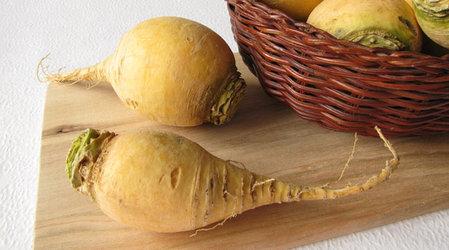
Turnip leaves and roots are used to treat and prevent many diseases. Turnips contain the chemical substance sulforaphane glucoraphanin, which helps fight such serious diseases as malignant tumors and diabetes.
Once in the human body, this substance has:
- antibacterial effect
- breaks down fats
- removes toxins
- reduces sugar levels
- stabilizes heart rate
To improve vision, it is enough to eat a few spoons of grated turnip daily. In addition, it will improve the condition of the skin, hair, nails and normalize the microflora in case of thrush and in the gastrointestinal tract.
Turnip juice with honey helps with colds and heart diseases. This remedy gives a particularly good effect in the treatment of pulmonary diseases:
- tuberculosis
- asthma
- bronchitis
You can make it from steamed turnips compresses for diseases joints, salt deposits, various pain manifestations. When rinsing the mouth with turnip decoction, it not only strengthens the gums, reduces their bleeding, but also has a beneficial effect on tooth enamel.
For skin diseases, you can take baths with a decoction of turnip leaves. In addition, this is an excellent remedy for:
- sleep disorders
- nervous excitability
- urolithiasis
- anemia
Despite the widespread use of turnips in cooking and medicine, there are cases when it should be used with caution or completely excluded from the menu.
Restrictions on the use of turnips
Whenever using turnips, it is important to observe moderation, because sometimes it is not the product itself that causes harm, but its excessive consumption. It is worth adhering to the dosages recommended in folk recipes and taking into account that boiled turnips are milder than raw ones.
It is completely worth giving up turnips during periods of exacerbation of diseases such as:
- stomach ulcer
- duodenal ulcer
- erosive gastritis
- hepatitis
- cholecystitis
- pyelonephritis
If you have diabetes, you must not only follow the norm, but also give preference to non-sweet varieties. It is also worth giving up turnips if you have an individual intolerance to this vegetable. Despite the presence of contraindications, the benefits of turnips deserve its return to the family menu.
Educational video about the benefits of turnips:
Interesting information about the vegetable garden







